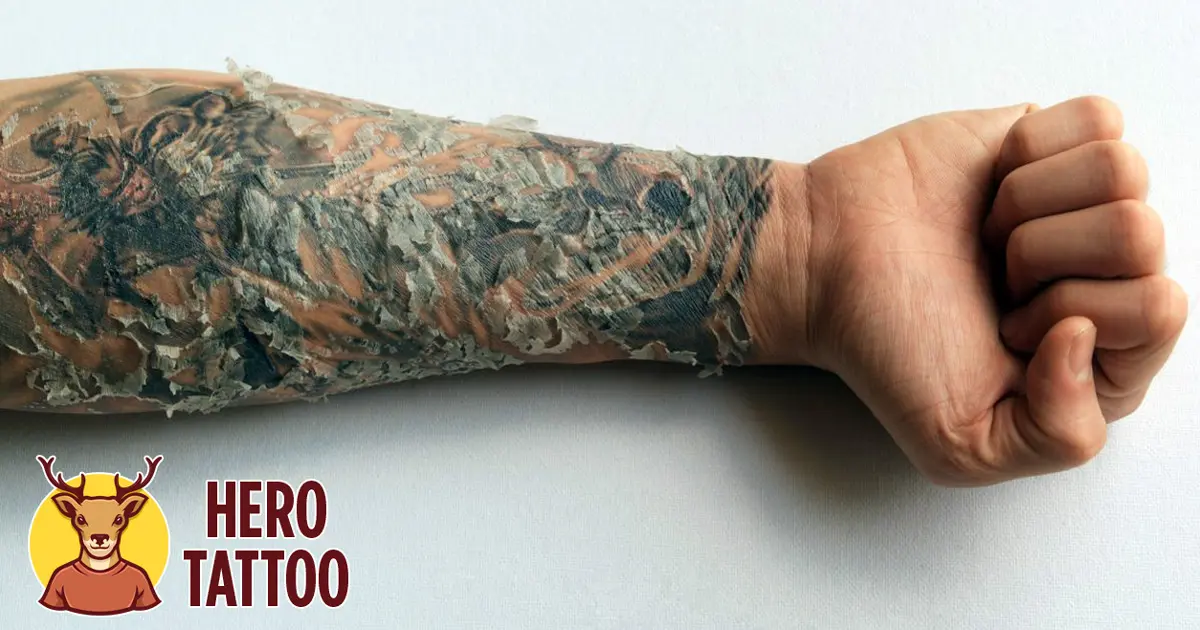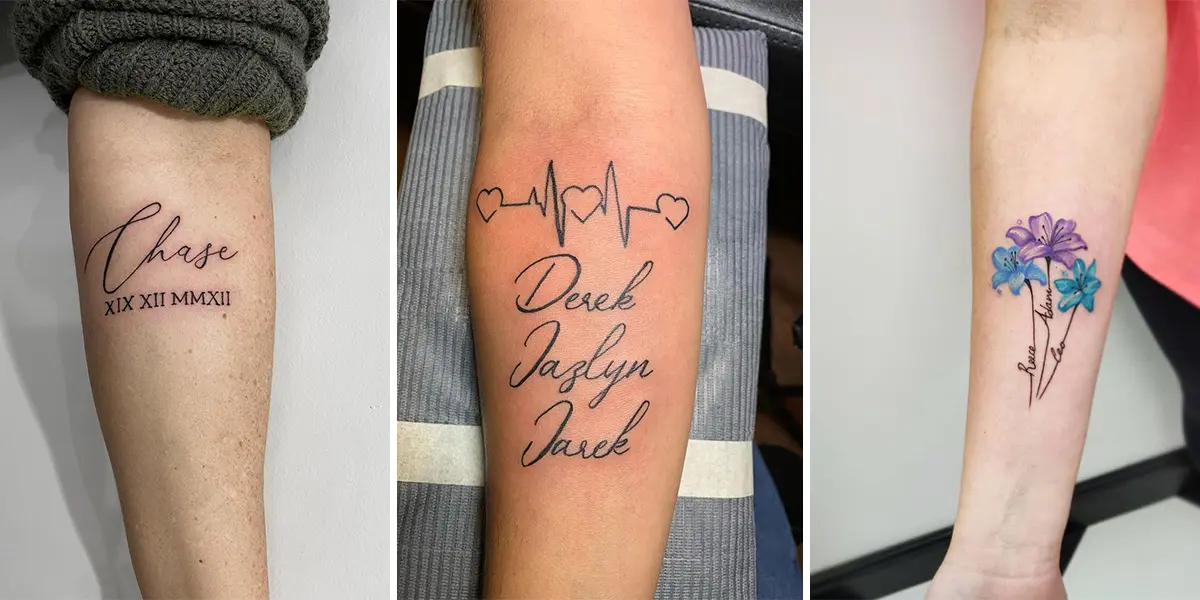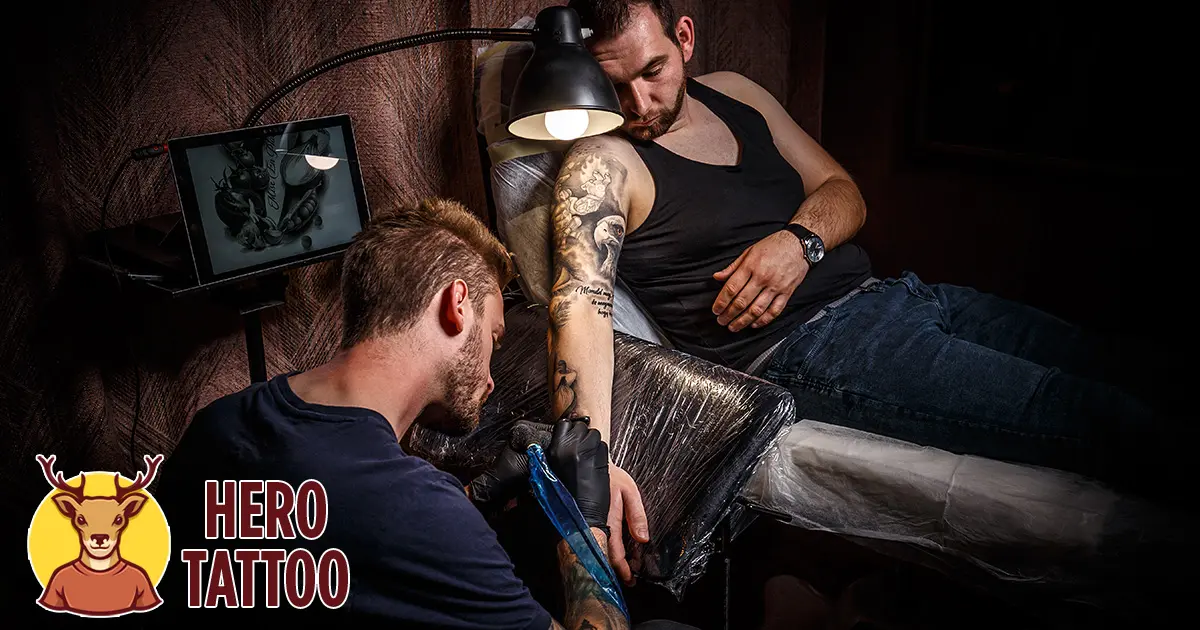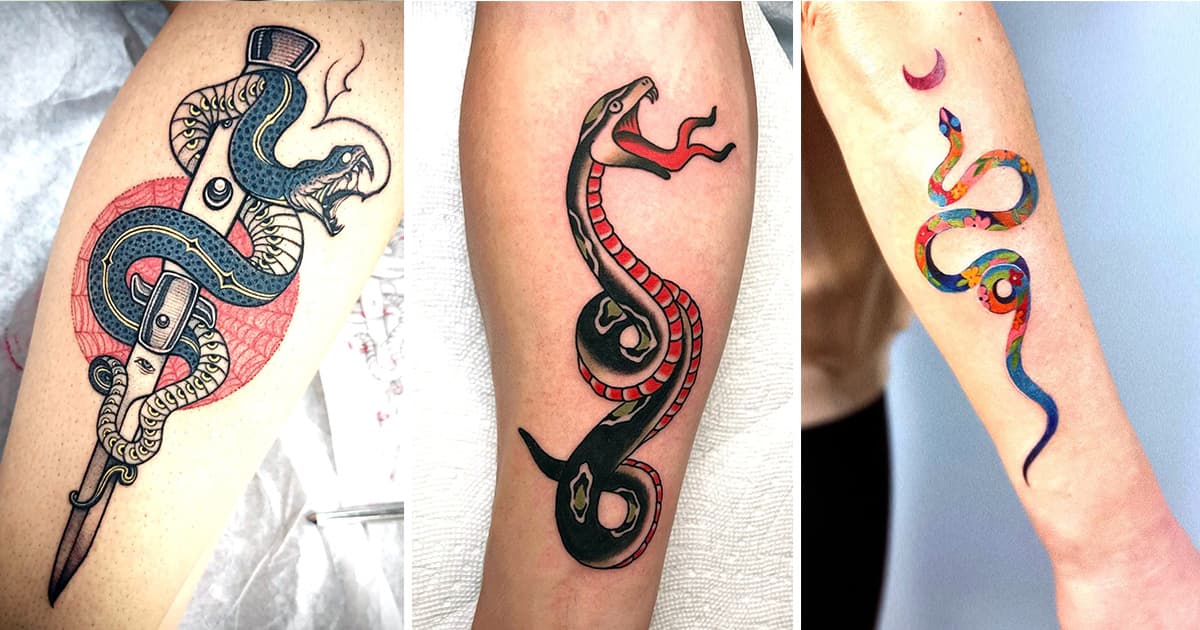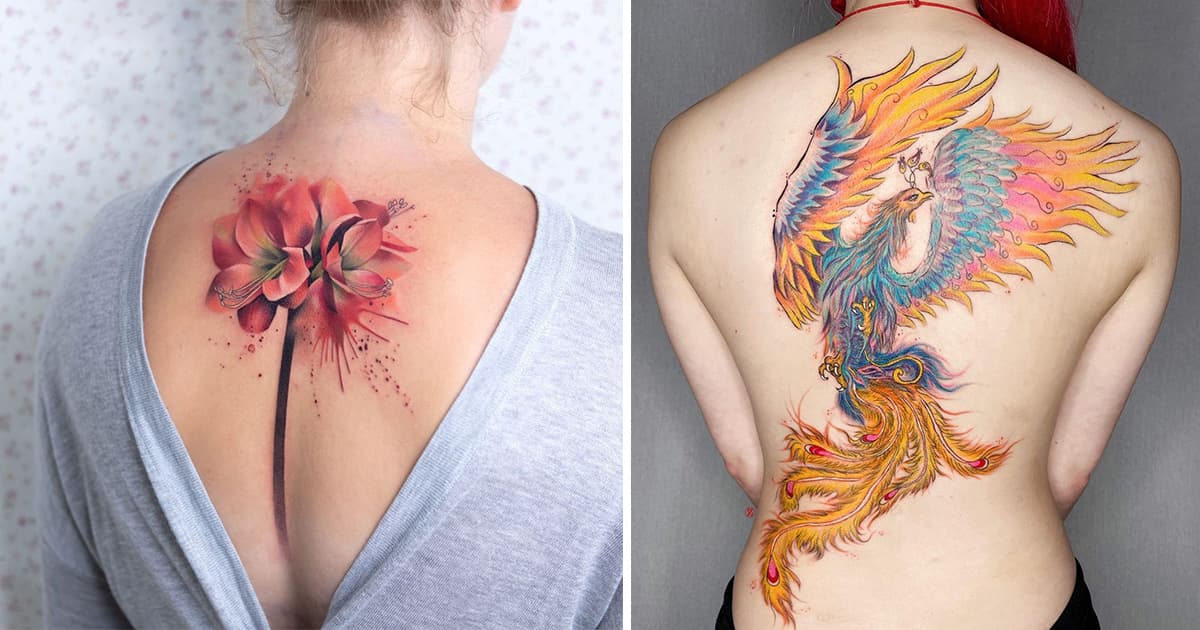One of the most rewarding experiences in the world is suffering through all of the agony and anguish and ultimately walking out of the tattoo shop with a brand new piece of ink on your body. However, that incredible sensation is invariably followed by one of the most unpleasant experiences possible: going through the aftercare process.
Tattooing is a rollercoaster ride, and the aftercare and aftermath are no exception. You’re in a lot of discomfort. Every part of your tattoo is bloated, red, and seeping, and everything is highly uncomfortable and itchy. However, even after the discomfort has subsided, you will be left with an itchy, scabby tattoo that is beginning to peel. And it is at this moment that one must summon all of their might and patience to avoid peeling off the tattoo.
What happens, though, when the tattoo does not come off? In most situations, one would begin to be concerned about the situation. However, how can you determine whether or not your tattoo is peeling and whether or not you should contact your tattoo artist?
We hope that the information provided in the following paragraphs will help you understand why your tattoo is not peeling and whether you should be concerned or not. So, without further ado, let’s get this show on the road.
Tattoo Peeling: 6 Things You Should Know Before Getting One
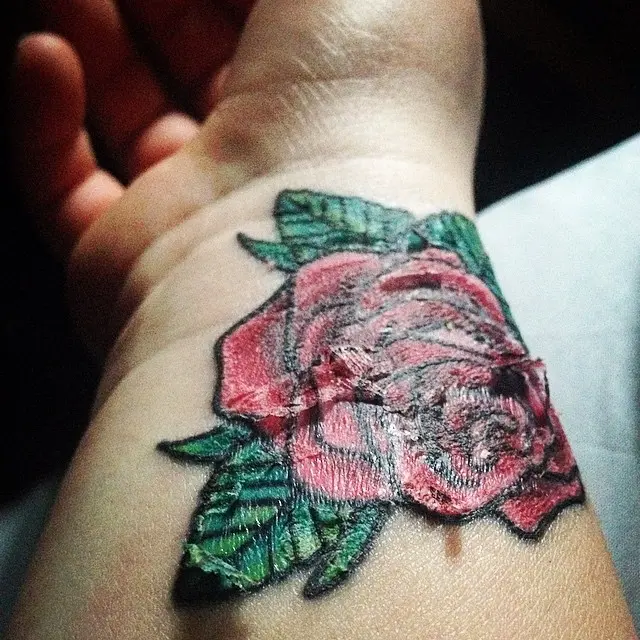
1. What Causes New Tattoos to Peel Off?
A tattoo peeling indicates that your tattoo is undergoing the appropriate healing procedure. After the tattoo has stopped bleeding and leaking and has been allowed to dry, new skin will begin to grow to replace the old, treated, and damaged skin that was previously present. As a result, the existing skin on the tattoo will begin to peel away to make way for a new skin layer.
The idea is to allow the tattoo to peel away naturally. It is critical to resist the temptation to peel off the tattoo! Peeling, picking, or scratching your tattoo is not recommended. This might cause problems with the appearance of the tattoo, or it can induce an infection by transferring germs from your fingers to the tattoo and causing it to swell.
2.How long does it take for it to peel away?
The first 24 hours after getting your tattoo are critical because it is still bleeding and seeping, making it critical to keep it covered with a bandage. After the first 24 hours, assuming that the bleeding has stopped, you can remove the bandage and wash the tattoo with unscented soap. It is always necessary to cleanse your hands before touching the tattoo material.
Following the initial washing of the tattoo, make sure to pat it dry with a paper towel and keep it exposed for a few minutes. To begin drying out, the tattoo must be allowed to breathe or be exposed to air. On the third day, you may begin to experience some itching, scabbing, and widespread pain due to the inflammation. The new skin is growing in this area, which is good.
As a result, you should see a progressive peeling off of the tattoo between the 4th and 7th days. In the beginning, there will be some slight peeling of the skin in localized areas. Later on, depending on the tattoo’s size, more sections will begin to peel away. This indicates that the tattoo is healing well and will seem bright and vibrant after the new skin has fully developed around the tattooed area.
3. Is every tattoo the same when it comes to peeling?
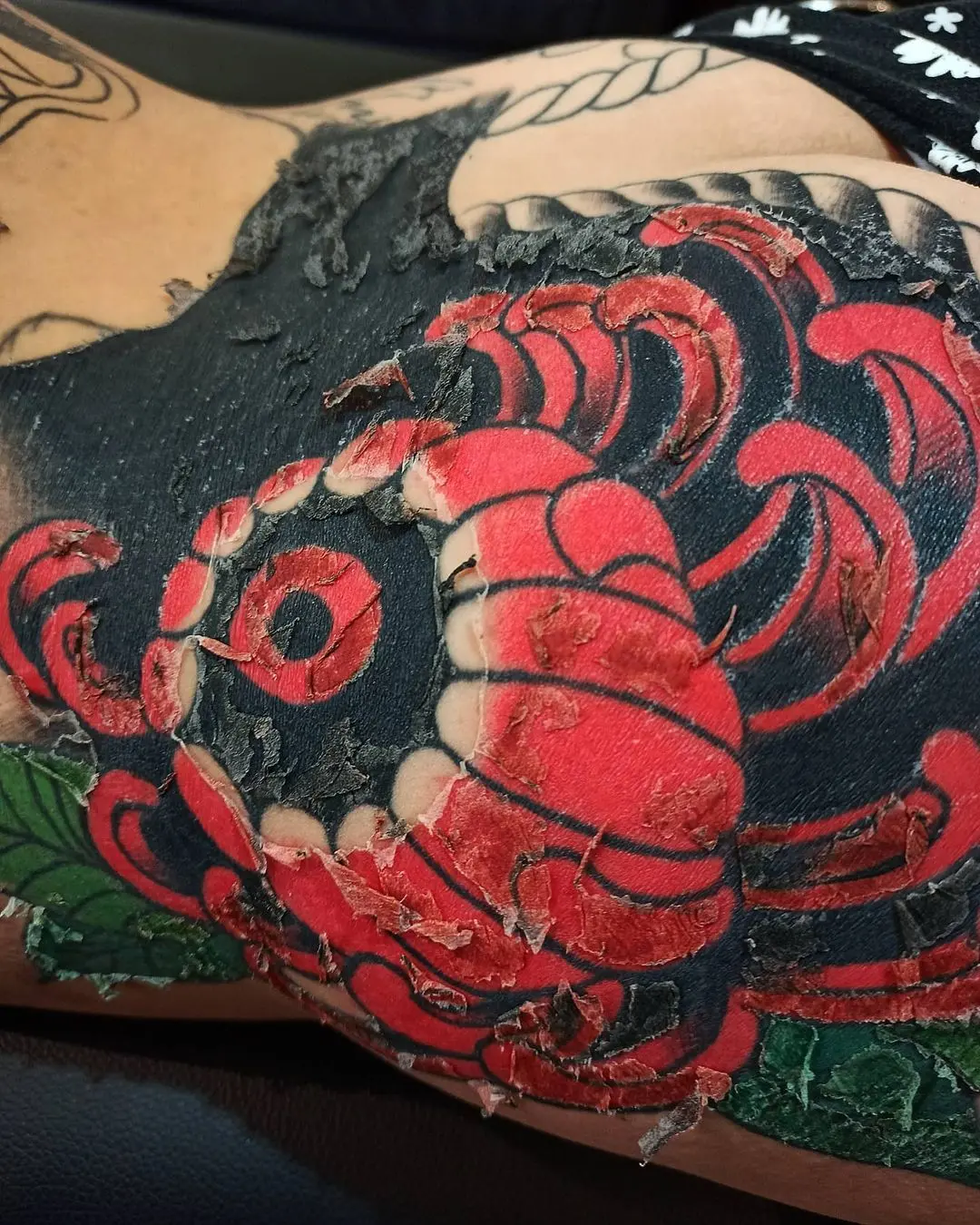
Tattoo peeling is a condition that occurs when a tattoo is removed and manifests itself differently in each individual. Some people’s tattoos begin to peel after 3 or 4 days, but others suffer from tattoo peeling after a week, or even up to 10 days, depending on the individual.
Some people’s tattoos are utterly impervious to peeling. Tattoos that peel late or do not peel at all may not always indicate something is amiss. It might simply indicate that your skin was more resilient to the shock of tattooing or that your immune system was able to fend off the harm and allow your skin to recover without having to replace the skin layers underneath it. Overall, not every tattoo peels in the same way, and this is something that happens regularly.
4. But why isn’t my tattoo peeling at all, as it should?
As previously stated, some people’s tattoos are permanent and never peel off. This does not imply that you should be too concerned about any issue. The tattoo is likely healing without the need for peeling at this point. However, if you are concerned and want specific answers, the following are some possible reasons why your tattoo is not peeling:
- Your skin was able to recover quickly with little or no peeling due to the procedure.
- Your new tattoo is modest, and it consists primarily of linework with little or no detail.
- Your tattoo artist used the tattoo needle thoroughly and professionally.
- Your tattoo artist utilized ink that was of excellent quality.
- Your tattoo is not thick and does not have any color.
Tattoos that are primarily linework and do not include many colors tend to heal with little or no peeling. Aside from being smaller, smaller tattoos are also less likely to peel, especially if they are delicate and include lines. Because your tattoo is tiny, does not contain any solid colors, and is done entirely in linework, you should not be concerned about it peeling.
5. When my tattoo isn’t peeling, when should I be concerned that it won’t peel?
If your tattoo is not peeling and everything else appears normal, there is no reason to be concerned. Consider the possibility that your tattoo is not peeling along with other undesirable side effects such as rashing, itching, soreness, and chronic swelling. Increased warmth of the tattooed region, redness, and seeping are all signs that you should seek medical assistance in this situation. There is a good chance you are suffering from an infection that has to be treated as soon as possible. Consequently, these are the most prevalent causes and symptoms of tattoo infection that you should be on the lookout for:
The causes of tattoo infection are:
- Using filthy, unwashed hands to touch the tattoo is not recommended.
- The tattoo needle and other tattooing tools were not sanitary at the time.
- The tattoo artist utilized expired, polluted, or poor quality ink.
- You didn’t take care of yourself following the procedure.
- You have an allergy to ink.
- You’re applying lotion to a newly inked tattoo.
Symptoms of a tattoo infection include:
- A rash appears around the tattoo.
- Swelling and redness occur together.
- bleeding and discharge continuously.
- Shivering, chills, and a high fever
- The pain is becoming very severe.
- Scabs that are loaded with pus
- a smell that is out of the ordinary and unpleasant.
6. What can I do to make sure my tattoo heals appropriately?
- It is essential to follow a thorough aftercare practice when it comes to tattoo healing. You must maintain the health of your skin as well as the health of your entire body. Consequently, here’s how you may guarantee that your tattoo heals appropriately, even if it doesn’t begin to peel right away:
- Keep your tattoo safe by never touching it with unwashed hands. Always wash your hands before touching it!
- Make a point of washing your tattoo twice a day, once in the morning and in the evening.
- After you’ve washed your tattoo, apply some moisturizer to it.
- Soap without fragrances should be used to clean your tattoo.
- Apply lotion to a new tattoo after three to four days; instead, wait three to four days before applying moisturizer to it.
- Take care to wear loose clothing and minimize friction in the tattoo region to provide a comfortable experience.
- The tattoo should not be taught, picked, peeled, or scrambled!
- Please avoid swimming or showering after getting a tattoo. Instead, cover the tattoo with a thin coating of Vaseline (which you will wear for a few minutes and then wash off soon once you’re done).
- Consume nutritious foods, such as healthy and fatty foods, healthy carbohydrates, and other things that will keep you energetic throughout the day, as directed.
- For a week after getting a tattoo, you should refrain from smoking and consuming alcoholic beverages.
- Protect yourself from the sun by using sunscreen and staying out of it!
Finally, remark that
It has already been noted that there are a variety of variables that contribute to tattoo peeling. However, if your tattoo does not peel, there is no need to worry about it. Otherwise, unless your tattoo has been infected and has been swollen and red for more than a week and has been bleeding and uncomfortable, you do not have an infection. In that scenario, you should seek medical assistance as soon as possible. However, if your tattoo appears to be in good condition and shows symptoms of routine healing, it should not be considered an issue.
